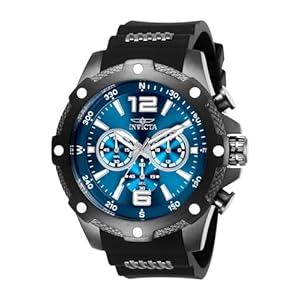
Anyone can get a traffic ticket, and many people accept the penalties without thinking about fighting them. However, these penalties can have serious consequences, like fines, higher insurance rates, and even driver’s license suspensions. Knowing your rights and how to contest a ticket can help reduce these impacts. This knowledge is vital for legal self-advocacy, yet many people either don’t know they can contest charges or are hesitant to do so.
This article will break down the important steps to effectively challenge a traffic ticket. From gathering strong evidence to hiring a ticket lawyer in Seattle, each step can improve your chances of a favourable outcome. Additionally, we’ll provide insights into the court procedures for traffic cases, giving you the tools to defend yourself legally without facing the typical challenges that often discourage action.
Gather Evidence
To effectively challenge a traffic violation, it’s important to gather solid evidence. This involves taking photos of the scene, getting statements from witnesses, and collecting any relevant documents, like traffic studies or repair reports of traffic signals, that support your case.

With this evidence, you can build a strong argument to counter the allegations against you. Using technology, such as dashcam footage, can provide undeniable proof for your defence. When all these elements are presented together, they significantly strengthen your position, turning your claim into a well-supported, evidence-based appeal. Make sure to organize your evidence clearly and present it logically to enhance its impact.
Review the Ticket
When reviewing your traffic ticket, be sure to check every detail for accuracy. Even small mistakes, like a misspelt name, incorrect vehicle information, or the wrong date and time, can make the ticket invalid. Carefully examining these details might reveal errors you can use to challenge the ticket. For instance, an incorrect license plate number or the wrong location can also be grounds for dismissal.
Additionally, understanding the specifics of the alleged violation—what the charge is and the circumstances under which it applies—helps assess the legitimacy of the charge. By paying close attention to details and knowing traffic laws, you can find strong reasons to contest any mistakes or unfair aspects of the ticket. For example, knowing the exact speed limit and how it was measured can be helpful.
Hire Legal Representation
Sorting through the legal system can be complex, especially when dealing with traffic violations. Hiring an attorney who specializes in traffic law can significantly improve your chances of a favourable outcome. An experienced lawyer will provide valuable guidance, handle all paperwork, and offer strong representation in court.
They are skilled in the specifics of traffic law, able to spot procedural errors, challenge evidence, and build defences you might not consider. Their advocacy ensures your case is presented effectively, increasing your chances of overturning the violation. While hiring a lawyer may cost extra, the potential benefits – such as avoiding fines, points on your license, increased insurance rates, or more severe penalties – can make it a worthwhile investment.
Attend the Hearing
Mark your calendar for your traffic violation hearing; missing it can result in an automatic guilty verdict. When the day comes, be fully prepared: have your documents organized, your points of argument practised, and your evidence ready to present clearly and precisely. Make sure all your paperwork is in order and easily accessible.
During the hearing, keep your statements clear and brief. Present your case confidently and answer the judge’s questions thoughtfully. Use concise language and avoid unnecessary details. This shows respect for the court’s time and strengthens your argument. Your goal is to give the judge a clear, logical explanation of why the violation should be dismissed, using well-organized evidence. Highlight any discrepancies in the evidence against you and provide any witnesses if applicable. Your preparation and conduct can greatly affect the hearing’s outcome.
Follow Up
After your hearing, it’s always a good idea to stay actively involved with the court. Make sure to follow up to receive the decision, as what happens after the hearing can often affect the final outcome. If the decision is not in your favor, don’t give up—you might consider appealing.
An appeal gives you a second chance to overturn an unsatisfactory ruling. Additionally, exploring other legal options is another way to contest the charge. This stage is just as important as any other; persistence and a thorough understanding of your rights and the legal details can help turn the outcome in your favour.
Successfully challenging a traffic ticket requires a strategic approach, from gathering solid evidence to presenting a compelling case in court. By understanding your rights and the specific details of your alleged violation, you can effectively contest charges that may otherwise lead to severe penalties. Legal representation can further enhance your chances, providing expertise and advocacy throughout the process. Attending your hearing well-prepared and following up diligently ensures you make the most of every opportunity to defend yourself. This proactive stance not only helps mitigate penalties but also reinforces the importance of legal self-advocacy.
Trending Products










